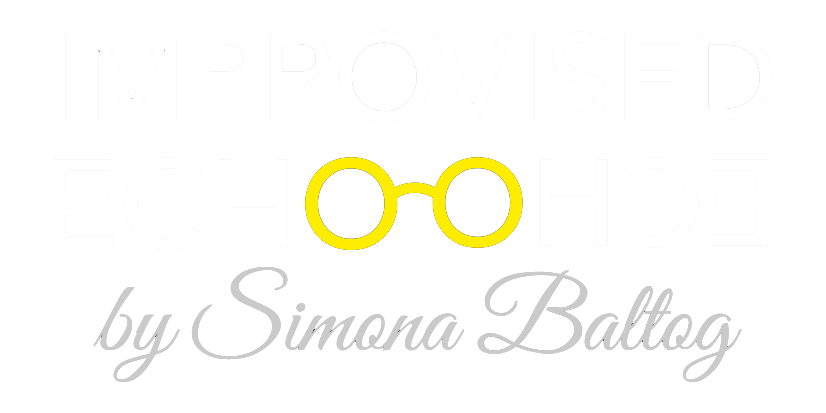Music and drama classes
Pick a category
For baby and parent
For small children (3-5 years old)
For schools (6 - 16 years old)
For adults
Description
In my baby music classes, we create a joyous and interactive environment where musical exploration enhances early development. Through gentle lullabies, rhythmic play, and sensory experiences, we foster a love for music in your little one.
Activities include instrument discovery, movement to music, and bonding moments with caregivers. My classes are designed to stimulate the senses, promote developmental milestones, and create lasting memories in a nurturing musical setting for both babies and parents.
Keypoints
- Lullaby Singing
- Rhythm Exploration
- Musical Movement
- Interactive Songs
- Texture Exploration
- Pitch Play
- Gentle Instrument Introduction
- Parent-Child Bonding
- Colorful Scarf Play
- Nature Sounds
- Simple Melodies
- Bubble Pops and Music
- Body Percussion
- Soft Puppetry
What is music?
Music is a place, a mental state, a safe place, a possibility to connect with your true feelings, a chance to discover your true potential, and last but most important, music is vibration. Music is an infinite chance to experiment and find new opportunities that are already in you.
What about drama?
Drama is a form of performing arts in which actors or performers use dialogue, actions, and emotions to portray a story, character, or situation to an audience. It is a broad and diverse art form that encompasses a wide range of theatrical performances.
Types of Drama which we will approach:
- Improvisation
- Role-plays
- Masked Drama
- Puppet plays
- Shadow drama
- Poetry
How can these classes help you?
Combining music and drama classes can provide a rich and comprehensive educational experience that offers a wide array of benefits.
Here are some of the advantages of participating in both music and drama classes together:
-
Enhanced Creativity
Music and drama classes stimulate creativity and imagination, allowing stundents to explore various forms of artistic expression.
-
Improved Communication Skills
Both disciplines focus on effective communication, whether through music, lyrics, or acting. Students develop better verbal and nonverbal communication skills.
-
Self-Expression
Music and drama provide unique outlets for self-expression, enabling students to convey their thoughts, emotions, and ideas in a creative and meaningful way.
-
Confidence Building
Participating in music and drama classes helps individuals build self-confidence, especially when they perform in front of others and receive positive feedback.
-
Emotional Intelligence
Both music and drama require an understanding of emotions and the ability to convey them convincingly. This fosters emotional intelligence and empathy.
-
Collaboration and Teamwork
Students learn to collaborate and work effectively in groups, which is valuable in both artistic and non-artistic contexts.
-
Stress Reduction
Engaging in music and drama can be a source of stress relief and relaxation. The immersive experience allows students to temporarily escape from everyday pressures.
-
Cognitive Development
Learning music theory, playing instruments, and memorizing lines all contribute to cognitive development, including memory, problem-solving, and mathematical skills.
-
Cultural Awareness
Both music and drama often explore different cultures, time periods, and perspectives, enhancing cultural awareness and appreciation for diversity.
-
Physical Coordination and Motor Skills
Playing musical instruments and engaging in physical theater require physical coordination and motor skills.
-
Improved Memory
Memorizing scripts, song lyrics, and musical compositions improves memory and cognitive abilities.
-
Public Speaking Skills
Drama classes can significantly improve public speaking abilities, which is a valuable skill for various professions.
-
Academic Benefits
Studies have shown that students who participate in both music and drama classes tend to perform better in academics, possibly due to improved cognitive and creative skills.
-
Lifelong Enjoyment
Both music and drama offer lifelong sources of enjoyment, allowing individuals to continue their artistic pursuits throughout their lives.
-
Career Opportunities
For those interested in careers in the arts, combining music and drama classes can provide a well-rounded foundation for careers in theater, music education, performance, composition, and more.
-
Holistic Personal Development
The combination of music and drama provides a holistic approach to personal development, addressing emotional, cognitive, and social aspects of growth.
-
Enhanced Entertainment Value
Combining music and drama in performances, such as musical theater productions, offers a richer and more engaging entertainment experience for both participants and audiences.
Overall, the synergy between music and drama classes offers a well-rounded educational experience that nurtures creativity, personal growth, and a deeper understanding of the arts. This combination can have a profound and lasting impact on individuals, enriching their lives in various ways.
